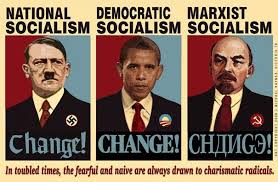The Fourth Amendment to the United States Constitution is the part of the Bill of Rights which guards against unreasonable searches and seizures. It was ratified as a response to the abuse of the writ of assistance, which is a type of general search warrant, in the American Revolution. The amendment specifically requires search and arrest warrants be judicially sanctioned and supported by probable cause. Search and arrest should be limited in scope according to specific information supplied to the issuing court, usually by a law enforcement officer, who has sworn by it.
In Mapp v. Ohio, 367 U.S. 643 (1961), the Supreme Court ruled that the Fourth Amendment applies to the states by way of the Due Process Clause of the Fourteenth Amendment. The Supreme Court has also ruled that certain searches and seizures violated the Fourth Amendment even when a warrant was properly granted.
The Second Amendment to the United States Constitution is the part of the United States Bill of Rights that protects a right to keep and bear arms from infringement by the federal government.
The U.S. Supreme Court has ruled that an outright ban on home possession of an operable firearm, such as a handgun, violates the Second Amendment, and has upheld the constitutionality of longstanding restrictions on the possession of firearms including handguns.
Original Message From: Dudley Brown - National Association for Gun Rights
Sent: Monday, June 29, 2009 Subject: "Your rights are suspended."
Welcome to Shreveport: Your rights are now suspended. According to Cedric Glover, mayor of Shreveport, Louisiana, his cops "have a power that [. . .] the President of these Unites States does not have": His cops can take away your rights. And would you like to guess which rights he has in mind? Just ask Shreveport resident Robert Baillio, who got pulled over for having two pro-gun bumper stickers on the back of his truck -- and had his gun confiscated. While the officer who pulled him over says Baillio failed to use his turn signal, the only questions he had for Baillio concerned guns: Whether he had a gun, where the gun was, and if he was a member of the NRA. No requests for a driver's licence, proof of insurance, or vehicle registration -- and no discussion of a turn signal. Accordingly, Baillio told the officer the truth, which led the police officer to search his car without permission and confiscate his gun. However, not only does Louisiana law allow resident to drive with loaded weapons in their vehicles, but Mr. Baillio possessed a concealed carry license! What does such behavior demonstrate, other than transparent political profiling -- going so far as to use the infamous Department of Homeland Security report on "Americans of a rightwing persuasion" as a how-to guidebook, no less? Mr. Baillio made no secret of his political affiliations: An American flag centers a wide flourish of pro-freedom stickers and decals on his back windshield. In fact, when Baillio asked the officer if everyone he pulls over gets the same treatment, the officer said no and pointed to the back of his truck. Baillio phoned Mayor Glover to complain about this "suspension of rights" only to find that his city's morbidly obese "commander in chief" was elated at the story: According to Glover, Baillio got "served well, protected well, and even got a consideration that maybe [he] should not have gotten." Thankfully, Mr. Baillio recorded a good bit of that phone call. You can watch a video with the transcriptions here. I've reproduced a chunk of the call below: NAGR spoke with Mr. Baillio, and he told us that he's in the process of securing the official procedures and codes for firearm handling and private property confiscation for the Shreveport police department. So far, the city has been half-heartedly cooperating with him. "I felt sick," Baillio told NAGR. "My uncles didn't die for this country so I could surrender my rights like a wimp. I felt terrible. I was just thinking of all that my family has done for freedom in this nation -- including dying -- and here they are disarming me at a traffic stop." What to do?
I'll leave you with one last consideration. As a licensed firearms instructor in charge of a hundred different students every month, I'm often asked if citizens should voluntarily inform police officers of the presence of a firearm during a routine traffic stop. While different states have different laws, my answer for Colorado citizens is an emphatic "No": Colorado law doesn't require you to volunteer that kind of information, and this case in Louisiana proves why, if at all possible, you should never invite trouble by doing so. Help fight gun control. Donate to the National Association for Gun Rights! |

 Oldies
Oldies
 Harrolds.Blogspot.com
Harrolds.Blogspot.com











 Legislation Pending in Congress
Legislation Pending in Congress







No comments:
Post a Comment
Please, avoid posting advertisements. Content comments are welcomed, including anonymous. Posts with profanity will not be published.